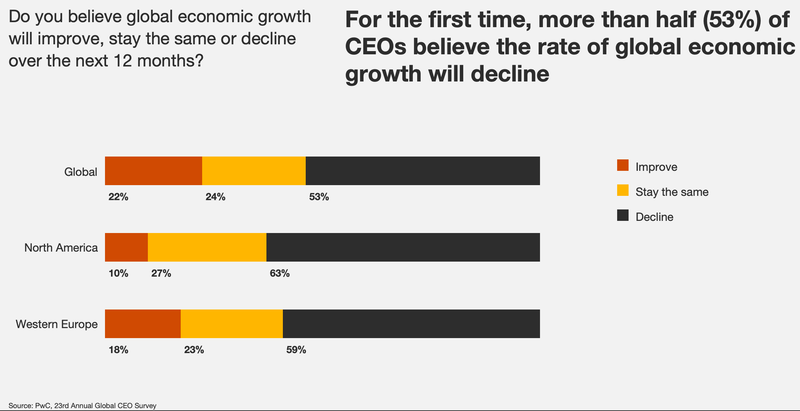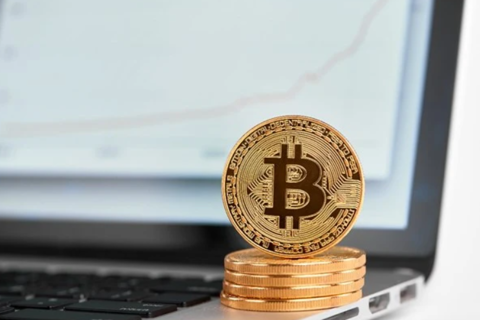Vietnam’s growth prospects remain positive despite pessimism for global economy
Despite the declining trend overall, 49% Vietnam CEOs in particular, share a positive outlook for business growth in the year ahead.
There is mutual optimism among CEOs in Vietnam and Asia – Pacific Economic Cooperation (APEC) for the year ahead, with Asia – Pacific remaining a significant destination and source of FDI fostered by resilient domestic growth in most of the region, said Dinh Thi Quynh Van, general director of PwC Vietnam.
“However, taking into account the global landscape of uncertainties, it’s important for businesses to stay agile and cognizant of evolving factors to readily navigate and adapt to any challenges ahead,” said Van in regard to PwC’s 23rd survey of almost 1,600 CEOs from 83 countries across the world, launched today at the World Economic Forum Annual Meeting in Davos, Switzerland.
The report revealed CEOs are showing record levels of pessimism in the global economy, with 53% predicting a decline in the rate of economic growth in 2020. This is up from 29% in 2019 and just 5% in 2018 – the highest level of pessimism since we started asking this question in 2012. By contrast, the number of CEOs projecting a rise in the rate of economic growth dropped from 42% in 2019 to only 22% in 2020.
CEO pessimism over global economic growth is particularly significant in North America, Western Europe and the Middle East, with 63%, 59% and 57% of CEOs from those regions predicting lower global growth in the year ahead.
Meanwhile, there is optimism among CEOs in Asia Pacific, with 35% expecting improvement and 15% looking forward to “great improvement” in the next 12 months, the highest proportion among global regions. This is consistent with results from our latest APEC CEO survey in 2019, where 34% of business leaders in the region (and 49% Vietnam CEOs) share a positive outlook for business growth in the year ahead, despite the declining trend overall.
“On a brighter note, while there is record pessimism amongst business leaders, there are still real opportunities out there. With an agile strategy, a sharp focus on the changing expectations of stakeholders, and the experience many have built up over the last ten years in a challenging environment, business leaders can weather an economic downturn and continue to thrive,” said Bob Moritz, chairman of the PwC Network.
CEOs are also increasingly concerned about cyber threats and climate change and environmental damage, however despite the increasing number of extreme weather events and the intensity of debate on the issue, the magnitude of other threats continues to overshadow climate change which still does not make it into the CEOs’ top ten threats to growth.
Policing cyberspace
While CEOs around the world express clear concerns about the threat of over-regulation, they are also predicting significant regulatory changes in the technology sector. Globally over two-thirds of CEOs believe that governments will introduce new legislation to regulate the content on both the internet and social media and to break up dominant tech companies. A majority of CEOs (51%) also predict that governments will increasingly compel the private sector to financially compensate individuals for the personal data that they collect.
However, CEOs are in two minds as to whether governments are striking the right balance in designing privacy regulation between increasing consumer trust and maintaining business competitiveness, with 41% saying it does strike the right balance and 43% saying it doesn’t.
On this matter, Pho Duc Giang, director at PwC Vietnam Cybersecurity Services Company said Vietnam witnessed an increase in the number of cyber attacks and data leakages in 2019 and the country has been among the top targets for cyber attacks in recent years.
“The causes may be due to inadequate data protection or non-compliance of relevant best practice standards. To mitigate cyber and privacy risks, the Vietnamese government has released a few cybersecurity laws and circulars,” said Giang.
“To leverage on growing business opportunities in the digital economy’s booming period, Vietnam enterprises need to actively prepare for new challenges by adapting and complying with up-to-date domestic as well as international standards on cybersecurity and privacy in a resilient manner,” Giang added.












